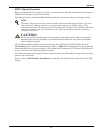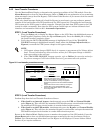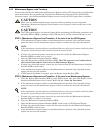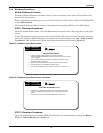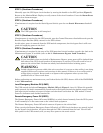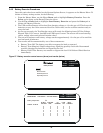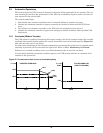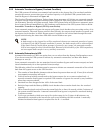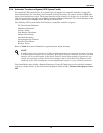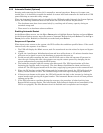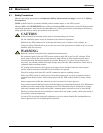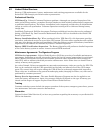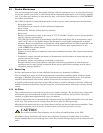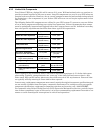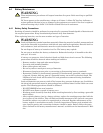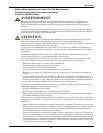
Operation
81
3.5.4 Automatic Transfers to Bypass (UPS System Faults)
For specified UPS system faults, the control logic will initiate an automatic transfer to bypass fol-
lowed immediately by a shutdown and isolation of the UPS system. The output, battery (MBD) and
input circuit breakers are open. The bypass breaker will be closed if the bypass line is available. Note
that the bypass line is usually not available during Low Battery Shutdown. The circuit diagram is the
same as illustrated in Figure 47 for Emergency Module Off.
The following UPS system faults will initiate an automatic transfer to bypass:
DC Overvoltage Shutdown
Hardware Shutdown
Inverter Fault
Low-Battery Shutdown
Output Overvoltage
Overload Shutdown
Overtemperature Timeout
Rectifier Fuse Blown
Reverse Power
Refer to Table 4 for more information regarding these alarm messages.
Your installation may include a Remote Emergency Power Off mode that can be initiated automati-
cally by a contact closure in the critical load equipment. Refer to 3.3.7 - Remote Emergency Power
Off.
NOTE
A load transfer to the bypass line will be completed whenever an automatic transfer to bypass
is initiated and the bypass line is available. If the OK to Transfer condition is present, the load
transfer will be uninterrupted. If the Static Switch Unable alarm message is present for any
reason, the automatic transfer will be interrupted for 40 to 120 milliseconds. Because of the
reliability of the UPS components, an interrupted load transfer is a very unlikely occurrence.



